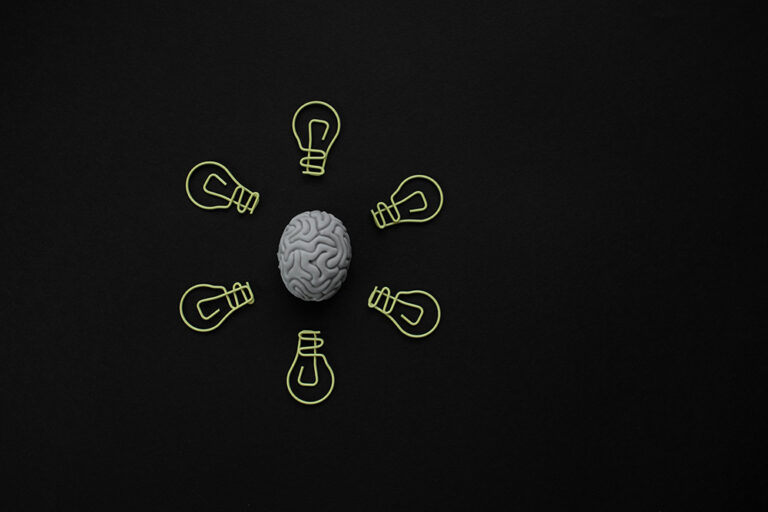Neurons in the Brain: The Journey from Baby to Adult Mind
The human brain is one of the most fascinating organs in existence. From the moment we’re born, it holds the potential for learning, memory, creativity, and emotional regulation. But how many neurons do we actually have, and how does that number change as we grow from newborn to adult?
For people in Nottingham who are curious about the science of the mind, and how understanding the brain can support better mental wellbeing, then this blog from Altered Mind Hypnotherapy dives into the fascinating journey of neurons across a lifetime.
Neurons at Birth: Billions Ready to Fire
When a baby is born, the brain already contains around 86 billion neurons, nearly the same number as an adult. However, these neurons aren’t yet fully connected. Imagine moving into a new city where all the houses are built, but the roads between them are still under construction. That’s what a newborn’s brain looks like.
During the first years of life, synapses (connections between neurons) form at an astonishing rate. This is why babies learn to walk, talk, and recognise faces so quickly. The brain is essentially wiring itself for survival and growth.
Childhood: Building Neural Pathways
By age 3, a child’s brain has over twice as many synapses as an adult’s. This is peak plasticity. At the stage, the brain is like soft clay, easily moulded by experiences. The neurons are there, but it’s the connections that make the magic happen.
This is also why childhood is such a critical time for learning languages, social skills, and emotional regulation. For families in Nottingham, it highlights the importance of providing children with positive, stimulating environments. What we learn in these years literally rewires the brain.
Adolescence: Pruning the Connections
As children become teenagers, the brain begins a process known as synaptic pruning. It removes weaker or unused connections and strengthens the important ones. This might sound destructive, but it’s essential for efficiency.
Think of it like tidying up a messy garage, you don’t need every item, just the tools that matter most. This is why adolescence can feel turbulent. The emotional regulation part of the brain (the prefrontal cortex) is still developing, while the reward and emotional centres are hyperactive. It’s a period where neurons and their pathways decide what will stay for adulthood.
The Adult Brain: Stable but Still Plastic
By adulthood, the brain has stabilised its connections. While the total number of neurons remains about 86 billion, the density of connections is less than in childhood. But here’s the key: the adult brain is not fixed. Neuroplasticity, the ability of the brain to rewire itself, continues throughout life.
This is where therapies like hypnotherapy and psychotherapy come into play. For adults in Nottingham dealing with stress, anxiety, or habits like smoking, tapping into neuroplasticity can help the brain build new, healthier pathways.
Neuron Decline: Ageing and Cognitive Health
As we move into older adulthood, some neurons naturally die off, and brain volume may shrink slightly. This doesn’t necessarily mean decline as many older adults maintain sharp minds thanks to mental stimulation, social interaction, and lifestyle habits.
Keeping the brain active, whether through puzzles, reading, or therapy, helps reinforce connections and slow down decline. Hypnotherapy can also support this by reducing stress (a known factor in memory loss) and strengthening positive neural pathways.
Frequently Asked Questions
| Question | Answer |
| How many neurons does a newborn have? | Around 86 billion, which is similar to an adult brain. |
| Do we grow new neurons? | Yes, in certain areas like the hippocampus, although the majority are present from birth. |
| Why do children learn faster? | Their brains have more synapses, meaning connections form and change rapidly. |
| What is synaptic pruning? | It’s the brain’s way of removing unused connections to make thinking more efficient. |
| Do we lose neurons as we age? | Some are lost naturally, but healthy lifestyle choices slow the decline. |
| Can the adult brain still change? | Absolutely – through neuroplasticity, adults can rewire habits and thought patterns. |
| How does stress affect neurons? | Chronic stress can damage neural connections, especially in memory and emotion centres. |
| Can hypnotherapy rewire the brain? | Yes, by creating calm, focused states, hypnotherapy supports the brain in building new pathways. |
| Why is understanding neurons important? | It helps us appreciate how learning, behaviour, and therapy shape mental wellbeing. |
| Is this science relevant to me in Nottingham? | Definitely – whether for personal growth, managing stress, or supporting children, understanding neurons helps everyone. |
Conclusion & Reasons to Contact Altered Mind Hypnotherapy
From birth to adulthood, the story of our neurons is nothing short of extraordinary. We start life with billions of brain cells waiting to be connected, grow through a phase of incredible learning, refine our minds during adolescence, and stabilise into adulthood, all while keeping the ability to change and adapt.
For people in Nottingham, this knowledge isn’t just fascinating, it’s empowering. It shows that no matter your age, your brain has the capacity to change. Whether you’re dealing with anxiety, struggling with habits, or simply looking for ways to unlock more potential, hypnotherapy can help guide your brain into healthier, more positive patterns.
At Altered Mind Hypnotherapy, sessions are designed to work with the brain’s natural processes, helping you build lasting changes without stress or struggle.
If you’re curious about how your brain can adapt and grow, or you’d like to explore hypnotherapy in Nottingham, get in touch today. Your neurons are ready for the next chapter!
Take the Next Step?
Book your FREE consultation today
eniko@alteredmindhypnotherapy.com
Supporting Nottingham & surrounding areas (online, in-person and flexible!)






